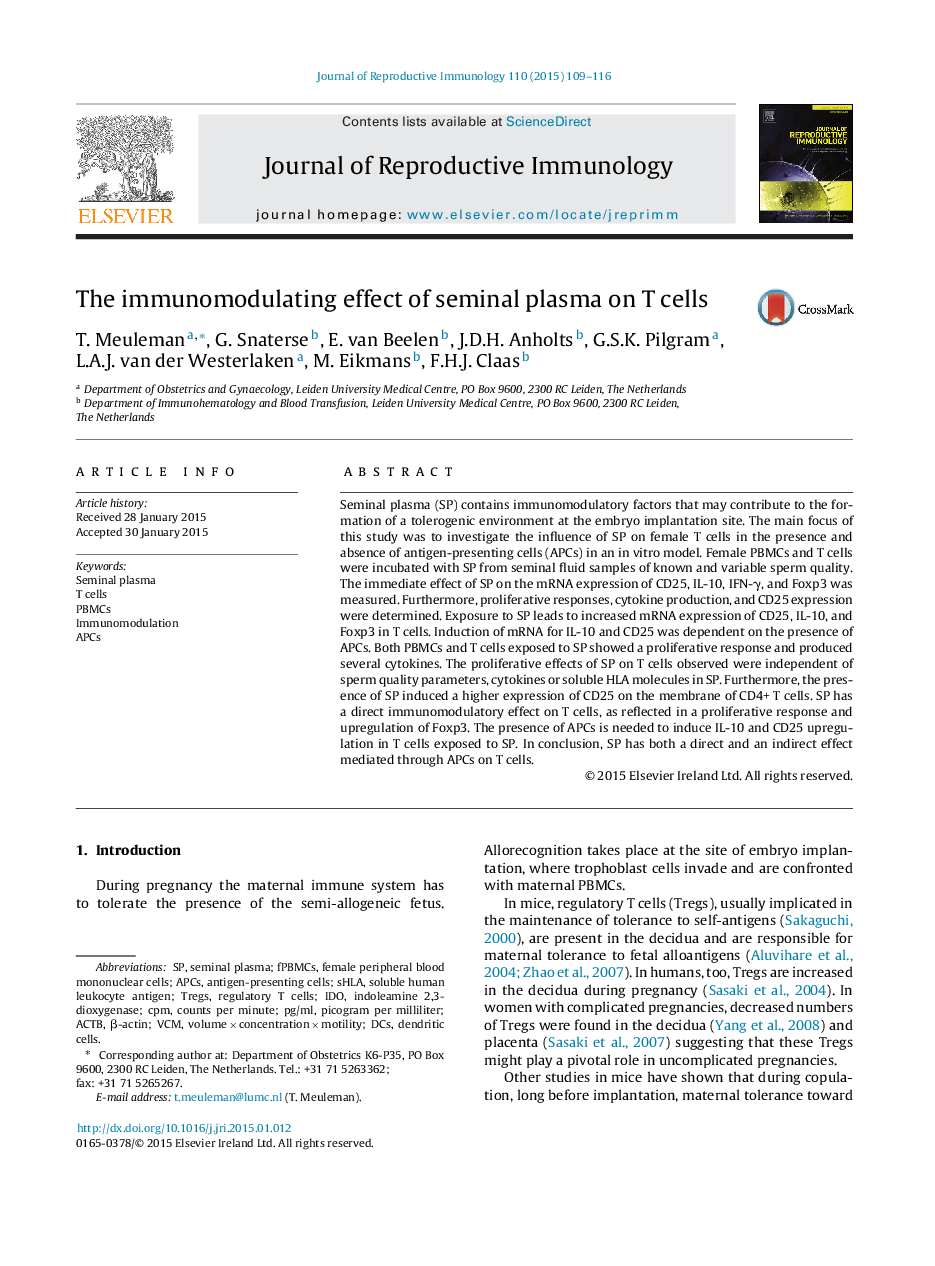| Article ID | Journal | Published Year | Pages | File Type |
|---|---|---|---|---|
| 6188514 | Journal of Reproductive Immunology | 2015 | 8 Pages |
â¢We investigated the direct effect and indirect APC-mediated effect of SP on T cells.â¢SP has a direct proliferative effect on T cells and several markers are increased.â¢APCs are needed to induce expression of IL-10 and CD25 in T cells exposed to SP.â¢Expression of IL-10 and CD25 suggests the induction of a immunoregulatory response.
Seminal plasma (SP) contains immunomodulatory factors that may contribute to the formation of a tolerogenic environment at the embryo implantation site. The main focus of this study was to investigate the influence of SP on female T cells in the presence and absence of antigen-presenting cells (APCs) in an in vitro model. Female PBMCs and T cells were incubated with SP from seminal fluid samples of known and variable sperm quality. The immediate effect of SP on the mRNA expression of CD25, IL-10, IFN-γ, and Foxp3 was measured. Furthermore, proliferative responses, cytokine production, and CD25 expression were determined. Exposure to SP leads to increased mRNA expression of CD25, IL-10, and Foxp3 in T cells. Induction of mRNA for IL-10 and CD25 was dependent on the presence of APCs. Both PBMCs and T cells exposed to SP showed a proliferative response and produced several cytokines. The proliferative effects of SP on T cells observed were independent of sperm quality parameters, cytokines or soluble HLA molecules in SP. Furthermore, the presence of SP induced a higher expression of CD25 on the membrane of CD4+ T cells. SP has a direct immunomodulatory effect on T cells, as reflected in a proliferative response and upregulation of Foxp3. The presence of APCs is needed to induce IL-10 and CD25 upregulation in T cells exposed to SP. In conclusion, SP has both a direct and an indirect effect mediated through APCs on T cells.
